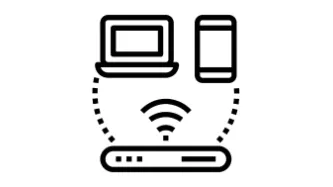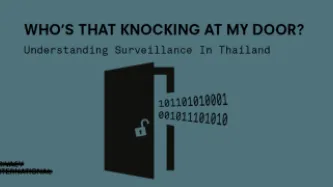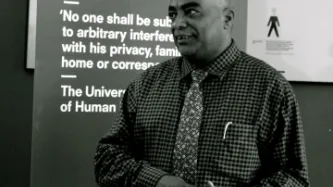Search
Content type: Long Read
Commercial interests seem to often overshadow the EU’s stance as a global privacy leader. After looking at Europes's shady funds to border forces in the Sahel area, Niger's new biometric voting system, and attempts to dismantle smugglers networks powered by Europe's gifts of surveillance, freelance journalist Giacomo Zandonini looks at the battle for data protection and digital rights in the continent.
What do a teenage labourer on a marijuana farm in Lesotho, a…
Content type: Case Study
Invisible and insecure infrastructure is facilitating data exploitation
Many technologies, including those that are critical to our day-to-day lives do not protect our privacy or security. One reason for this is that the standards which govern our modern internet infrastructure do not prioritise security which is imperative to protect privacy.
What happened?
An example of this is Wi-Fi, which is now on its sixth major revision (802.11ad). Wi-Fi was always designed to be a verbose in…
Content type: News & Analysis
In our latest report “Who’s that knocking at my door? Understanding surveillance in Thailand”, we highlighted various methods of surveillance that the Thai Government employs. Included in these methods was the finding that Microsoft was the only technology company which by default trusts the Thai Government’s root certificate. Root certificates ensure the validity of a website, and protect users from being tricked into visiting a fake, insecure website. Most technology companies including Apple…
Content type: News & Analysis
While two of the Vice journalists who were recently arrested in Turkey and charged with terror offenses have now been released, this remain a deeply concerning incident.* It is the latest episode in what is a pincer movement against our right to protect our data.
Two British journalists and their Turkey-based Iraqi translator working for VICE News were arrested last Thursday and charged with "engaging in terrorist activity". According to Turkish authorities, one member of the group had an…
Content type: News & Analysis
Every government seems to want to spy in Pakistan. The US' National Security Agency (NSA) tapped the fibre optic cables landing in Karachi, among others, and used 55 million phone records harvested from Pakistani telecommunications providers for an analysis exercise. The United Kingdom's Government Communications Headquarters (GCHQ) had a store of SIM keys from Mobilink and Telenor networks, two of the country's biggest providers.
But the Pakistani government, specifically the…
Content type: Press release
The Investigatory Powers Tribunal (IPT) today revealed that the UK Government Communications Headquarters (GCHQ) spied on two international human rights organisations, failed to follow ITS own secret procedures and acted unlawfully.
The targeted NGOs are the South African Legal Resources Centre (LRC) and the Egyptian Initiative for Personal Rights (EIPR). Both are leading civil liberties organisations and co-claimants alongside Privacy International, Liberty,…
Content type: News & Analysis
A sizeable political controversy has engulfed President Goodluck Jonathan’s Government in Nigeria, where details surrounding its plans for the total surveillance of Africa’s most populous country continue to emerge.
Thanks to pervasive snooping technology readily found and developed in the US, UK, Israel and the Netherlands, the already spy-equipped security forces in Nigeria will have greater and more intimate access to the lives of some 56 million Internet users and 115 million active fixed…
Content type: News & Analysis
After suffering years of persistent harassment, violence, and surveillance at the hands of his oppressive government, Tadesse Kersmo had enough. Tired of living under constant monitoring, Tadesse and his wife escaped Ethiopia, where they had been politically active for years, and were granted asylum in the United Kingdom in 2009.
It was only a few years later that they discovered that this escape was an illusion, and that they had been followed from Ethiopia to England. He may have left his…
Content type: News & Analysis
Privacy International today is proud to announce our new project, Aiding Privacy, which aims to promote the right to privacy and data protection in the development and humanitarian fields. Below is an outline of the issues addressed in our new report released today, Aiding Surveillance.
New technologies hold great potential for the developing world. The problem, however, is that there has been a systematic failure to critically contemplate the potential ill effects of deploying technologies in…
Content type: News & Analysis
It is common knowledge that surveillance technologies keep us safe. These technologies can uncover where a would-be bomber has fled or reveal that a suspect is planning an attack on the New York City subways. Such successes, and the belief - and business - in them has fueled a vast expansion of CCTV, wiretapping and data mining since 9/11, the Madrid bombings in 2004 and the attacks on London's public transport system in 2005. But this common knowledge is based, at best, on shaky evidence. In…








